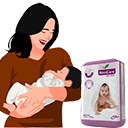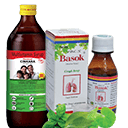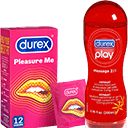

 Prescription Medicines
Prescription Medicines OTC Medicine
OTC Medicine Skin Care
Skin Care Baby & Mom Care
Baby & Mom Care Devices
Devices Herbal,Unani & Ayurvedic
Herbal,Unani & Ayurvedic Sexual Wellness
Sexual Wellness

Tablet
900.00৳ Original price was: 900.00৳ .846.00৳ Current price is: 846.00৳ .

Anorexia nervosa: 100 mg/day for 6 months was used in a pilot study.
Diminished ovarian reserve: 50 to 75 mg/day (in divided doses) has been used in clinical studies of assisted reproduction.
Exercise training–induced muscle damage: 100 mg/day of Dehydroepiandrosterone supplementation was administered over 5 days in a study in young men undergoing exercise training.
Major depressive disorder: Doses ranging from 30 to 450 mg/day for 6 to 8 weeks have been used in clinical studies.
Metabolic syndrome: 100 mg/day for 3 months has been used in a study evaluating effects against metabolic syndrome in pre-and postmenopausal women.
Postmenopausal women: 25 mg/day has been suggested because this dose minimizes androgenic adverse effects; however, only studies in which at least 50 mg/day was used demonstrated positive outcomes as hormonal replacement therapy.
Use caution in individuals with psychiatric disorders; agitation, confusion, anxiety, paranoia, and suicidal thoughts have been reported. Use of hormones like DHEA may cause erythrocytosis. Use caution in individuals with diabetes, as DHEA may increase insulin resistance or sensitivity. Use caution in individuals with liver dysfunction, as DHEA may exacerbate this condition. Use caution in individuals with polycystic ovarian syndrome, as DHEA may worsen this condition.
No account yet?
Create an Account